The outdoors summer has a sting in the tail for South Shore-based Death To Pest
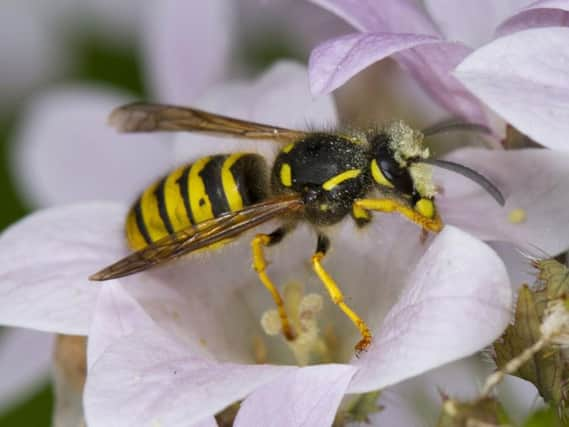

Across the UK there has been increased reports of wasps on the rampage as numbers have boomed in the heat.
Not only that, but at this time of year the adult wasps are starving and their favourite sugary food, fruit, has ripened faster than usual.
Advertisement
Hide AdAdvertisement
Hide AdIf the fruit is over ripe, then the wasps can end up drunk on the alcohol it contains making them even more aggressive than normal.
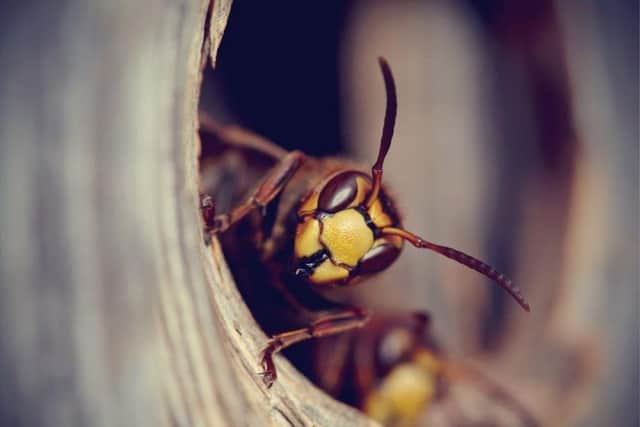

Pest controllers have reported more call outs than normal at this time of the summer and that some of the nests are much bigger.
Sharon McConville, a director at South Shore-based Death To Pest, said they had seen an increase in householders contacting them across Lancashire.
She said: “It started off quite slow but once the long hot spell got going, it speeded up the wasps’ nesting process and we have seen a lot more than usual.
Advertisement
Hide AdAdvertisement
Hide Ad“Some of the nests this year have been extremely big, probably due to the hot weather. One huge one was under the soffit boards near the roof of a house in Blackpool, but we also commonly see them making nests under roof tiles and in air bricks.
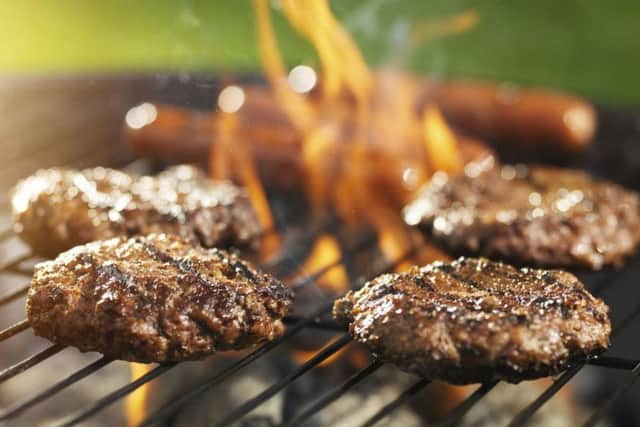

“We have also been called out a lot by people thinking they have a nest somewhere but it is just the number of wasps flying around the bushes in their gardens looking for food.”
Alan Wright, from Lancashire Wildlife Trust at Bamber Bridge, said the hot summer had played its part, but people tend to notice more wasps in late summer due to the natural lifecycle of nests.
The adult wasps are unable to digest the food they catch. Instead, the wasps chew up their food and feed it to the larvae (young insects) who then produce a sugar rich spit which they can eat.
Advertisement
Hide AdAdvertisement
Hide AdBut at the end of summer, the queens have stopped laying eggs, there are fewer larvae and hungry wasps are out and about looking for sugary food that they can eat.
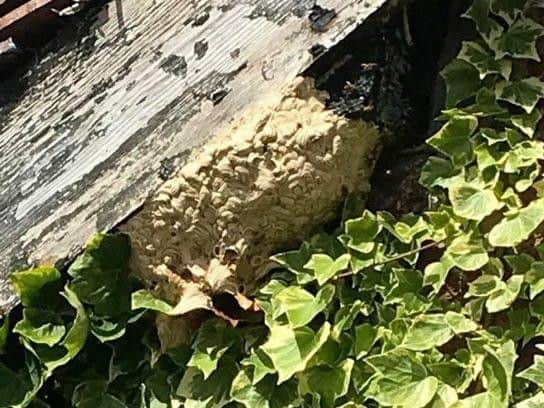

Alan Wright said: “The large numbers are due to the good weather. We had a cold winter but a long warm spring which has been good for insects.
But also people have been out in their gardens more this summer and so there is more contact with wasps.
“They are very persistent and determined but not usually aggressive. If wasps get too close you should just try to waft them away or use a jar of sugared water to distract them.
Advertisement
Hide AdAdvertisement
Hide AdSome people of course have to be very careful if they are prone to allergic reactions, but nine times out of 10 they will not sting.
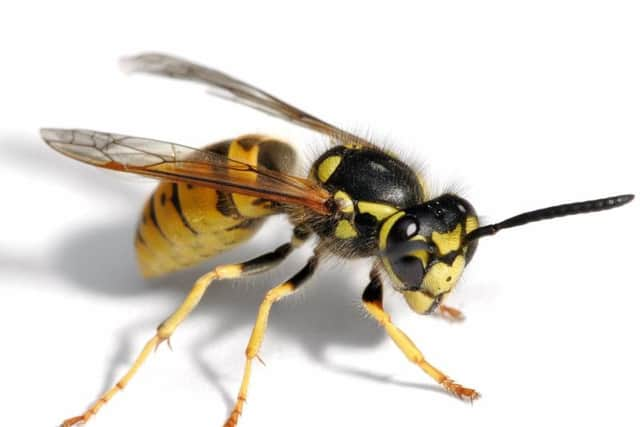

“However, this time of year they feed off rotting fruit, get a little drunk and a little lairy.”
Experts warn that if you try to swat wasps they release a pheromone to alert others of an attack which can then attract others and make them aggressive.
Most people like bees and appreciate the pollination work they do, but Alan says that wasps too are good pollinators and also do a fine job of taking care of millions of pests such as caterpillars and greenfly.
Advertisement
Hide AdAdvertisement
Hide AdRHS principal entomologist Dr Andrew Salisbury. “The social wasps are hugely important beneficial predators - the grubs in the nest need to be fed a protein diet and that is other insects. Caterpillars are a favourite.
“I have watched them remove every single cabbage white caterpillar from a patch of nasturtiums, and we have had reports of them feeding on box tree moth caterpillars. They come in, sting the caterpillar, remove the head and fly off with the body to feed the grubs.”
Alan Wright added: “They are the gardener’s friend.
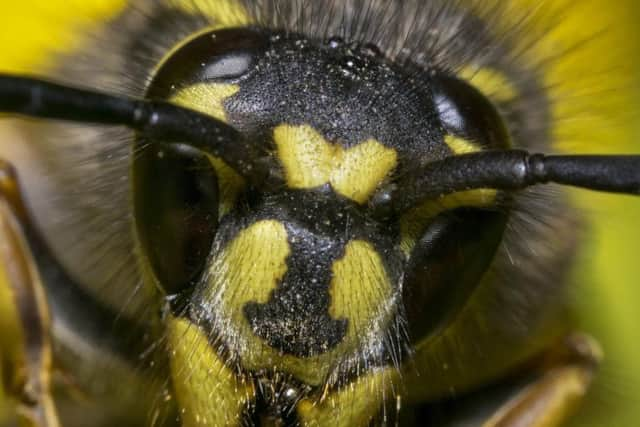

“We also need all the pollinators out there. A third of the world population’s food is dependant on pollinators.
“Wasps are also fantastic architects. Their nests are beautiful. Wasps are beautifully evolved, exceptionally skilled at what they do and absolutely determined on finding food. That is part of the reason why people do find them a bit scary.”
Advertisement
Hide AdAdvertisement
Hide AdThere are seven species of social wasps common to the UK Help scientists find out more about wasp species, diversity and distribution by taking part in the Big Wasp Survey between August 25 and September 8. For details go to bigwaspsurvey.org.